Smoking and dental practices often clash with each other. But today we are not talking about the danger of nicotine, but about the first inflation after dental manipulations. Can I smoke immediately after tooth extraction? How long does it take to smoke a cigarette without fear of harming yourself? What is the harm of smoking after tooth extraction? You will find the answer to these questions in the article.
TREATMENT MEASURES
After the tooth is extracted, the open bleeding wound remains in place. If the wisdom tooth is removed, a large wound remains in its place. To stop the blood, the dentist closes the wound with a cotton ball soaked in a medical solution, which should be removed after 20 minutes. After removing the fleece, a small blood clot forms in the hole of the missing tooth that should never be removed. This clot is a guarantee of bone regeneration and promotes rapid healing of fresh wounds.
Do not try to remove a blood clot from a well: this is necessary for rapid tissue regeneration.
The dentist will treat the hole with a medicinal agent, and after removing the wisdom tooth, he should undergo a course of antibiotics. But antibiotics are not prescribed in all cases, but if a molar with a curved or overgrown root is operated on.
When a large wound area is created, sutures can be applied. In this case, the first inflation can be done only 2 or 7 days after this procedure. It all depends on the ability of the tissue to recover. During this period, the sutures will heal and the doctor will remove the surgical sutures.
EFFECT OF NICOTINE
Everyone has heard of the effect of nicotine drops on a horse's life, but they continue to smoke. How does addiction affect the health of teeth and the oral cavity? It turns out that nicotine causes great damage to the mucous membranes, larynx, lungs. Nicotine irritates the mucous membranes, causes various diseases of the oral cavity, promotes caries.
Cigarette smoke contains a complex combination of different resins and chemicals that will inhibit tissue healing. The situation is complicated by the penetration of these substances into the blood through the salivary fluid. During inflation, many toxic substances enter the human body, including hydrogen cyanide and hydrocyanic acid.
Nicotine and cigarette smoke are toxic to oral tissues. Smoking is allowed only after complete recovery of the injured mucosa.
Nicotine can have a mild pain-relieving effect, relieving stress by stimulating the production of happiness hormones. However, the damage to the body from her is more than good. This should not be forgotten when you justify your habit with an analgesic effect.
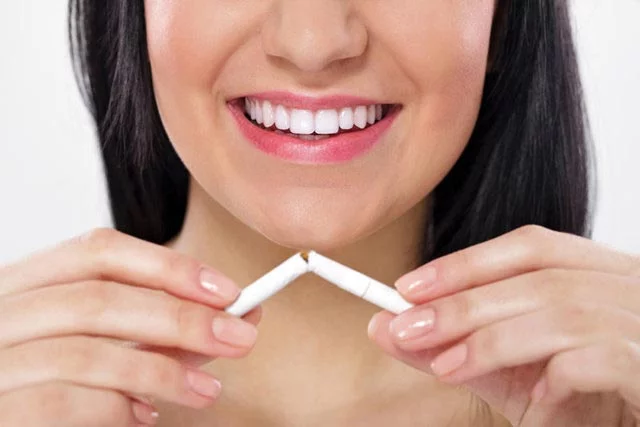
Negative effects of smoking after tooth extraction:
- development of the inflammatory process in the tissues of the oral cavity;
- development of an inflammatory process in the hole - alveolitis;
- increase in blood pressure, removal of a blood clot.
The claim that nicotine has beneficial effects on stress relief is not supported by scientific experiments. In fact, cigarette smoke creates the illusion of relieving stress, actually exacerbating the negative manifestations at the physiological level:
- tachycardia;
- angina pectoris;
- increased breathing;
- dysfunction of peristalsis;
- muscle tension.
Therefore, after removing the molars, you should refrain from smoking for as long as possible, preferably for a few days. The carcinogens contained in tobacco smoke are deposited layer by layer on the surface of the wound, causing enormous damage to health.
ALVEOLIT
The first harm of inhaling a cigarette after surgery: nicotine dries out the well. In order for tissue regeneration to take place on time and successfully, a moist environment is required. However, cigarette smoke contributes to the drying of the mucosa, which negatively affects the surface of the wound hole.
A dry hole is a polygon for the activity of pathogenic bacteria that quickly cause inflammatory processes. In severe cases, the inflammatory processes will end in alveolitis - a serious disease. With this pathology, the walls of the hole, which formed after the removal of the molars, become inflamed.
Causes of alveolitis:
- violation of tissue integrity as a result of injury;
- infection in fresh wound;
- violation of blood coagulation dynamics.
Symptoms are reminiscent of intoxication of the body with waste products of pathogenic bacteria:
- muscle aches;
- headaches;
- nausea and weakness.
In addition to the general symptoms of intoxication, there are also characteristic signs of gingival tissue pathology: mucosal edema, facial muscle edema from the focus of inflammation. Osteomyelitis with the formation of a fistulous canal of constant outflow of pus can become a complication of alveolitis.
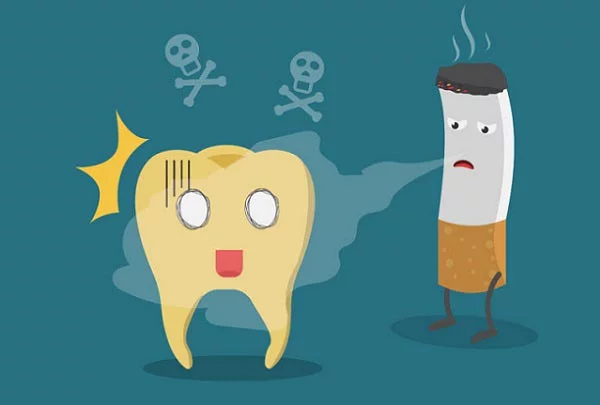
BLOOD PRESSURE
A smoked cigarette temporarily raises blood pressure, which can cause the blood clot that covers the socket to simply “pop out”. This threatens the development of an inflammatory process due to infection in the open wound. The chemicals in cigarette smoke narrow the lumen of blood vessels, thereby increasing blood pressure. Vasoconstriction prevents adequate nutrition of the mucous tissue, which slows down the regeneration processes.
HISTAN SMOKING, VIPING
Hookah is considered to be less dangerous for smokers due to the use of refined tobacco. Is that right? Purified tobacco smoke causes less damage to health, but has the same negative effect on the wound surface. It is located on the mucosa, interferes with normal blood circulation and causes inflammatory processes.
As for the electronic analogue of cigarettes and hookah - deletion - the ban is also valid. The resins are not released during the wiping process, but other toxic substances are formed. They reach the mucous membranes and surfaces of the wound, damaging the smoker.
Delete the composition:
- diacetyl; glycerin; propylene glycol;
- tastes.
Diacetyl flavoring poses a special danger that becomes toxic when heated in a cigarette battery. In moderate amounts, this substance is not dangerous to health, but if it is continuously heated and consumed, it can lead to serious pathologies in the lungs.
Inhalation of smoke leads to drying of the oral mucosa, which opens the way for the growth and harmful effects of pathogenic bacteria.
Propylene glycol causes allergies, it accumulates in the tissues of the mucous membrane. This substance irritates the mucous membrane, causes inflammation and other pathologies. At high temperatures, glycerin and propylene glycol produce formaldehyde and acrolein, which are harmful.
The use of one handkerchief by several smokers causes the spread of infectious diseases, hepatitis, tuberculosis. The same can be said for a hookah if different people use the same pipe.
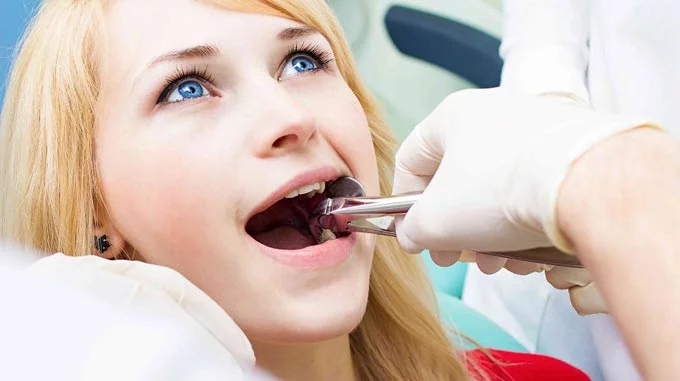
DENTAL RECOMMENDATIONS
If there are no special problems with non-smoking patients, then many dental and orthodontic manipulations are not available to smokers. Smokers should not undergo jaw bone augmentation surgery, soft tissue suturing, or implant implantation. During tightening, the sutures may separate and the implant may fall out. But still, by following the precautions and strictly following the recommendations of the dentist, you can achieve results in smokers.
DOCTOR'S ADVICE
- A cotton swab with antiseptic can be removed 20 minutes after tooth resection, if this is not done, the bacteria will start to multiply;
- the ball of blood in the dental cavity cannot be spit out or removed in any other way - it protects the wound from the unfavorable external environment, activates tissue regeneration;
- rinse your mouth very carefully with antiseptics so as not to accidentally remove the protective ball from the well;
- it is better to replace the usual mouthwash with solutions with drawers - hold the solution in your mouth and then spit it out carefully;
- if the doctor put the medicine in the well, it must not be removed without permission;
- first oral hygiene can be carried out only the day after resection;
- if a doctor has prescribed a course of antibiotics, he should be monitored;
- in case of severe pain, taking anesthetics is recommended, you do not have to suffer from discomfort in the gums.
If the removal operation was successful, the first stroke can be made after a few hours. Stay away from the thought of a cigarette for at least 2 hours.
If the bleeding hasn't stopped after 2 hours, you can't think about a cigarette. Strong bloating can increase bleeding, so you will need to seek additional medical help.
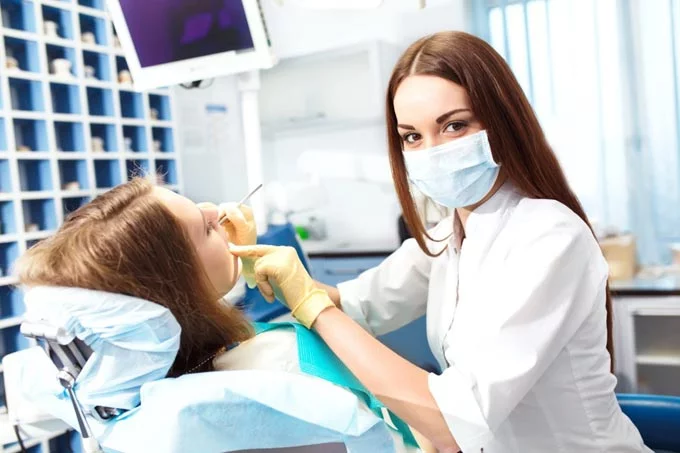
WHAT IS FORBIDDEN
- Clean, rinse mouth 24 hours after resection;
- take a steam bath, a hot bath, sunbathe in the solarium - higher degrees will increase bleeding from the wound;
- exercise in a fitness club, gym, sports section - until the wound heals and the stitches dissolve;
- when stitches are applied, not only can you tighten, but you can even smile and open your mouth wide - the stitches will spread quickly;
- you can nibble after stress only after 2-3 hours; it is also not recommended to drink liquid (or carefully through a straw);
- alcohol is strictly forbidden - it greatly dilutes the blood, the wound will begin to bleed;
- you can't drive a car these days, it's better to call a taxi.
You will have to give up the usual spicy, salty foods, very hot / cold dishes for a while. This means you can’t eat ice cream, drink a cold fruit drink or freshly brewed coffee. Pickled mushrooms and pickles are also banned for a while, it is desirable to give up smoked meat.
You also have to give up coarse foods: croutons, hard fruits, vegetables. You can’t bite carrots and radishes for several days in a row. Food products should be soft, never salty, not peppery. You will need to sit on a frugal diet for a few days until the tissues are completely healed.
WHAT TO DO
- Apply ice to the cheek if the pain is overcome - but keep such a compress for no longer than ten minutes;
- warm herbal baths - will soothe damaged tissues, relieve swelling, remove pain;
- take painkillers, anti-inflammatory drugs, except aspirin and analgin - dilute the blood.
If you are on drug treatment, you must inform your dentist. He will adjust his medication intake. Some drugs affect the viscosity of the blood and cause bleeding, so their use should be abandoned for a while.
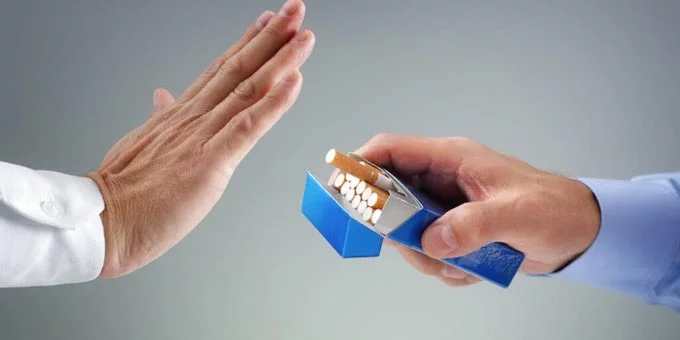
TOTAL
Cigarette smoke causes the development of various pathological conditions that prevent rapid healing of damaged tissues. Therefore, it is impossible to withdraw after removing the molars for several hours, and when sewing the gums - for several days. Smoke contains many toxic substances that reach the damaged shell and cause damage.
Also, tobacco smoke dries out the mucous membrane, which poses a danger to the blood cells inside the hole - it is responsible for restoring the integrity of the tissue, preventing the penetration of microbes.























